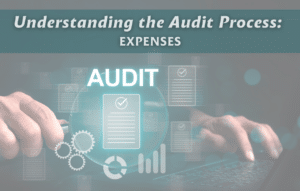GYF’s Jeff Ford and Eric Anthony gave an update on current A&A topics at our recent CPE Day.
Jeff kicked off the presentation focusing on the nationwide CPA shortage, which Fortune Magazine reports to exceed 300,000 accountants in the United States. He reviewed the various negative perceptions of the profession and possible reasons for the decline in college students pursing accounting careers. In general, there are fewer students attending universities, with a fewer number of students majoring in accounting, followed by fewer people sitting for the CPA exam. The AICPA, PICPA and many firms are working to help reduce this trend by adjusting the 150-hours requirement and increasing entry-level salaries.
New/Updated ASUs
Eric introduced some recent ASU updates, noting that 2024 was a “light year” for new accounting standards. Some of the ASUs he discussed include:
- ASU-2021-07 (for private companies) provides a practical expedient to allow stakeholders to use a “reasonable valuation method” for share-based awards.
- ASU 2024-01, Topic 718 – Stock Compensation applies to all entities that account for “all profit interest awards,” also known as units. The ASU adds four illustrative examples to help determine whether a profit interest award should be accounted for a share-based payment arrangement under Topic 718, or similar to a cash bonus or profit-sharing arrangement not subject to Topic 718. Eric walked through each of the examples added to the ASU. This guidance will become effective for the periods beginning after December 15, 2025 for non-public entities.
- ASU 2022-04 – Supplier Finance Programs – new disclosure requirements were added to this ASU, which was issued September 2022. The goal of the additions is to enhance transparency of supplier finance programs, which allow buyers to offer suppliers the option to pay in advance of an invoice due date. These new disclosure requirements include key terms, roll forward of activity, and a description of where the obligations are reported on the balance sheet. This ASU is effective after December 15, 2023, for nonpublic companies that engage in these supplier finance programs.
- ASU 2022-03 – Fair Value Measurement – new disclosure requirements were added to the ASU, which was issued in 2022. These requirements clarify guidance in Topic 820 related to measuring the fair value of an equity security subject to contractual restrictions that prohibit the sale of the equity security. This ASU is applicable for all non-public companies beginning after December 15, 2024.
- ASU 2023-09 – Improvement to Income Tax Disclosures was issued December 2023 to enhance transparency in decision usefulness of income tax disclosures. This ASU applies to all entities, with more extensive disclosure requirements for public companies. The guidance is effective for all non-public companies for years ending December 15, 2025.
Crypto Accounting
Jeff moved on to talk about ASU 2023-08 –Subtopic 350-60 – Crypto Accounting & Disclosures. He noted that the FASB has not specifically addressed this topic until recently, treating crypto assets the same as other intangible assets. In December 2023, they issued specific guidance for crypto accounting. The amendments require that holdings in crypto assets are to be measured and recorded at fair value with changes to net income. Crypto assets, as well as the income effect of the changes in value, should be be presented separately from other intangible assets. This ASU is effective for all fiscal years beginning after January 15, 2024, but many companies are opting for early adoption.
Jeff also noted the ASU’s requirement that near-immediate conversions of crypto (for example, donations of assets to a nonprofit which are monetized soon after acquisition) are to be separately presented as cash receipts on the statement of cash flows. He then discussed crypto-related disclosure requirements in more detail. This guidance is intended to provide more clarity when dealing with crypto accounting.
Business Combinations
Next, Jeff transitioned to the topic of business combinations, specifically the formation of joint ventures under the guidance of ASU 2023-05. This ASU provides a clear definition of a joint venture as well as rules for the initial measurement of assets contributed and liabilities assumed upon formation. The FASB applied purchase accounting guidance, requiring that the assets and liabilities present at inception are treated with a new basis of accounting, measured at fair value on the formation date. This ASU is effective for all joint ventures formed after January 1, 2025.
Other Potential Future Changes
Jeff introduced an exposure draft issued in October 2024 (2024-ED400) related to determining when to begin capitalizing costs for internal use software. Comments on this proposed guidance are due on January 27, 2025.
Eric reviewed some tentative FASB board decisions. In June 2024 a press release was issued for the accounting for environmental credit program (ECP) with a 90-day comment period. They are expected to release an exposure draft at the end of 2024. This proposal will provide guidance on how to account for these ECPs as well as the disclosures that will be required.
Employee Benefit Plans
Jeff finished up the presentation with a reminder about rules for audits of employee benefit plans. For years after January 1, 2023, the Department of Labor (DOL) changed the employee count threshold for audit requirements. Previously, it was based on number of eligible participants (100), however, many organizations had a large number of eligible participants who did not participate. The new rule counts the number of participants with account balances (threshold remains at 100) without consideration of the number of eligible employees. The change was intended to reduce the number of plans subject to an audit. Plans can still voluntarily elect to have an audit performed.
Click here to access copies of the slides, links to resources and a video of the presentation
About GYF’s CPE Day: The firm presents this program each year to bring together clients, friends of the firm, and other professionals who are interested in gaining knowledge. The day is always filled with interesting presentations and great networking opportunities, and is generally attended by 300+ guests. If you have any questions about the material covered, or other issues we did not have time to address, please reach out to your GYF Executive or contact the office at 412-338-9300. We look forward to seeing everyone next year!








